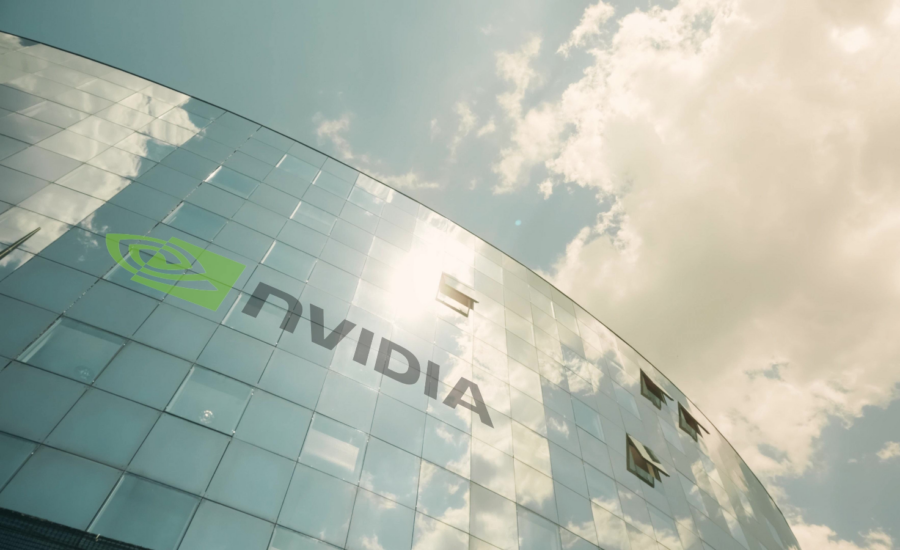Making sense of the markets this week: October 13, 2024
Investors like Canadian Natural Resources’ latest purchase, Nvidia moves past Microsoft, Couche-Tard ups bid for 7-Eleven’s parent and Delta slips as revenue disappoints.
Advertisement
Investors like Canadian Natural Resources’ latest purchase, Nvidia moves past Microsoft, Couche-Tard ups bid for 7-Eleven’s parent and Delta slips as revenue disappoints.

Michael McCullough is a contributing editor to MoneySense and a financial writer and editor in Duncan, B.C.
For a decade now, big acquisitions by Canadian oil-and-gas producers have mostly been met with distaste by investors. So we’ll take it as a heartening sign how well the markets received Canadian Natural Resources’ (CNQ/TSX) decision to buy the Alberta upstream assets of Chevron Corp. (CVX/NYSE) for USD$6.5 billion in cash. CNQ stock rose 3.7% Monday in the wake of the announcement. Chevron was up 0.7% on a day when oil prices increased.
The assets in question comprise a 20% stake in the Athabasca Oil Sands Project, along with 70% of the Kaybob Duvernay shale play. That should add 122,500 barrels of oil equivalent per day to Canadian Natural Resource’s 2025 output, the company said. It also announced a 7% bump to its quarterly dividend, to 56.25 Canadian cents a share, beginning in January.
Chevron explained the asset sale in terms of freeing up cash for U.S. shale acquisitions as well as targeted positions abroad, such as in Kazakhstan, which it considers to hold better long-term profit potential.
Reports of the death of the Magnificent 7 tech stocks’ decade-long run are greatly exaggerated, Nvidia (NVDA/Nasdaq) seemed to say this week as its shares rose past $130. (All figures in U.S. dollars.) That pushed its market capitalization ahead of Microsoft Corp. to $3.19 trillion. That leaves only Apple, with a market cap of $3.4 trillion, worth more than the AI-focused chip-maker.
Nvidia’s stock is up 26% in the past month, compared to a 6% advance for the S&P 500. Nvidia has grown tenfold in just two years. The price movement this week appeared to come from a positive report from Super Micro Computer, a provider of advanced server products and services. It found that sales of its liquid cooling products, deployed alongside Nvidia’s graphics processing units (GPUs), would be even stronger than expected this quarter. Analyst estimates of Nvidia’s adjusted EBITDA (earnings before interest, taxes, depreciation and amortization) for the three-month period ended this month is $21.9 billion.
Posting its second straight disappointing set of quarterly results on Tuesday, beverage-and-snack maker PepsiCo lowered its full-year guidance for organic revenue unrelated to acquisitions.
Results were hampered by recalls of the company’s Quaker Foods products, related to potential salmonella contamination. PepsiCo also experienced weak demand in the U.S. and business disruptions in some overseas markets, such as the Middle East. Pepsi’s North American beverage volumes fell 3% year-over-year, mostly due to declines in energy drink sales. Meanwhile, its Frito-Lay division suffered a 1.5% decline.
“After outperforming packaged food categories in previous years, salty and savory snacks have underperformed year-to-date,” executives said in a prepared statement. Overall, PepsiCo revised its 2024 sales growth outlook from the previous 4% to low single digits.
PepsiCo (PEP/Nasdaq): Earnings per share were $2.31 adjusted (vs. $2.29 consensus). Revenue of $23.32 billion (vs. $23.76 billion expected). (All figures in U.S. dollars.)
A slowdown in new seat capacity among American air carriers helped boost revenue and earnings at Delta Air Lines (DAL/NYSE) in the third quarter. The company expects further growth in the current quarter, although the U.S. presidential election is keeping some travellers home. Bookings for the holiday season are strong, the company said. It expects adjusted profit of $1.60 to $1.85 per share in the fourth quarter, in line with analyst estimates. (All figures in U.S. dollars.)
The summer travel season was accompanied by a 5.5% increase in capacity, which saw some airlines discount their fares, an analysis by BofA Securities showed. The rate of new seats added has since slowed to 1.5%. That, accompanied by a 25% drop in the price of airline fuel this year, has seen the NYSE Arca Airline Index rise 25% over the past two months.
In spite of disruptions blamed on the CrowdStrike software update in July, Delta’s net income rose 15% year-over-year to $1.27 billion in the quarter ended September 30. That still failed to satisfy Wall Street, whose earnings estimates were slightly higher. DAL as a result traded lower on the day Thursday.
Delta Air Lines (DAL/NYSE): Earnings per share were $1.50 adjusted (vs. $1.52 consensus). Revenue of $14.59 billion (vs. $14.67 billion expected).

Get up to 4.00% interest on your savings without any fees.

Lock in your deposit and earn a guaranteed interest rate of 3.55%.

Earn 3.7% for 7 months on eligible deposits up to $500k. Offer ends June 30, 2025.
MoneySense is an award-winning magazine, helping Canadians navigate money matters since 1999. Our editorial team of trained journalists works closely with leading personal finance experts in Canada. To help you find the best financial products, we compare the offerings from over 12 major institutions, including banks, credit unions and card issuers. Learn more about our advertising and trusted partners.
Alimentation Couche-Tard’s (ATD/TSX) pursuit of the Japan-based parent of 7-Eleven, Seven & i Holdings, took a new turn on Wednesday. Seven & i confirmed receipt of a revised offer, which unnamed sources quoted by Bloomberg claimed was worth $47 billion, 22% more than the original offer. (All figures in U.S. dollars.) Couche-Tard’s previous bid of $38.5 billion or $14.86 a share was rejected by the company’s management and board.
News of the offer triggered a spike in Seven & i shares, though the stock then settled back, closing the day up 4.7%. Should the deal proceed—and there are formidable regulatory hurdles yet to be faced—it would represent the largest foreign takeover of a Japanese firm. You can find more details about this ongoing saga from our coverage last month.
You still have time to register for the 2024 Canadian Financial Summit, October 23 to 26. It’s a free online event, and reservations are first come, first serve. MoneySense’s own Lisa Hannam, Jonathan Chevreau, Jaclyn Law and Michael McCullough are among the 30-plus personal finance experts presenting, so don’t miss out!

Share this article Share on Facebook Share on Twitter Share on Linkedin Share on Reddit Share on Email